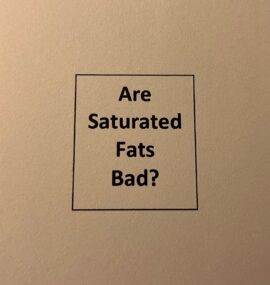Why saturated fats are considered “bad” Saturated fats are widely regarded as “bad” by the medical community. The reasoning goes like this. Eating foods rich in saturated fats, primarily animal products such as meat, milk, cheese, and yogurt, increases intake of cholesterol. Influential studies conducted by Ancel Keys starting in the 1960s, identified cholesterol as…
more
Are Saturated Fats Truly Bad?






